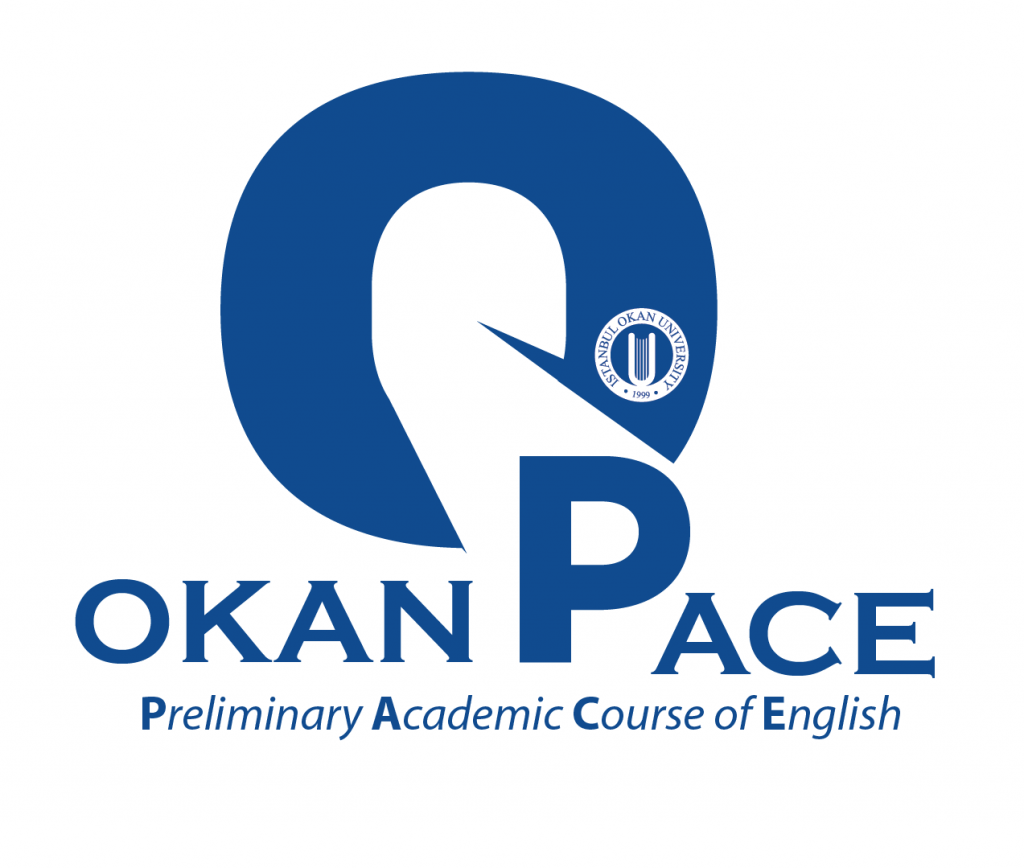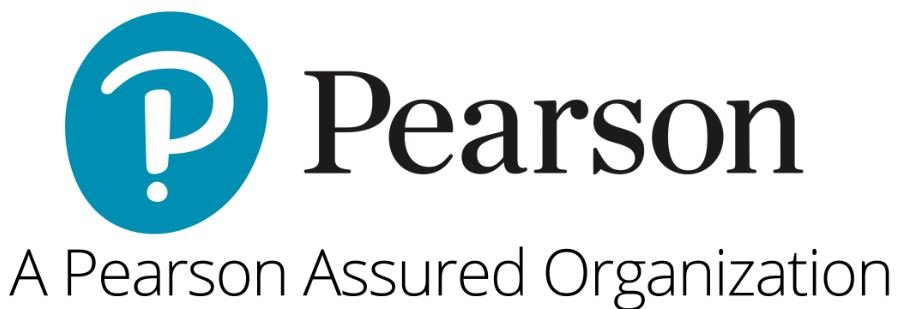


















PACE
The PACE program is an academically based program designed to provide a learning experience for students who need to improve their listening, speaking, reading, writing, and comprehension skills in English to continue their education in their Freshman year successfully.

The program was internationally approved for quality assurance by the independent quality assurance organization ‘Pearson Assured’ in the year 2019.
PACE Courses
The purpose of the course is to build on and strengthens students’ language skills and help students to apply them in a range of different academic contexts. Other than that, PACE is committed to:
Course Descriptions
PACE Route System PACE implements a semester system comprising of 2 semesters for 2 Routes. Each semester lasts 18 weeks.
Our Fall Route 1 students have 18 weeks of Elementary through Pre-Intermediate in the first semester and move on to Spring Route 2 as the next step. Spring Route 2 students have 18 weeks of instruction staring at Intermediate and ending the academic year with upper-Intermediate. PACE’s Fall Route 2 students have 18 weeks of beginning Pre-Intermediate ending with Intermediate. Students have the opportunity to take our mid-year proficiency exam and move on to their departments depending on Istanbul Okan’s regulations. Spring Route 3 students continue through with Intermediate and end in upper-Intermediate. In addition, all of our Route 2 students are introduced to English for Specific Purposes (ESP), which is solely aimed at their faculty’s language. All of PACE’s Routes have a detailed syllabus that follows an integrated approach to the teaching of academic language skills (listening, speaking, reading, and writing). In PACE, our students are geared with academic skills provided by their lecturers and content. Students are driven to reach a CEFR B2 exit level through a variety of departmental related topics so that they can use the language taught in all four areas with enthusiasm. Our assessment and evaluation system is also prepared in coordination with our education system both in-class and online.
Fall Route 1 Goals: In Route 1, our students are introduced to general & academic English initially. Academic skills are then introduced towards the end of the Elementary Route and throughout the remainder of the program. Students are taught to begin critical thinking on a variety of academic friendly topics so that they can use the language taught in all four areas. Our assessment and evaluation system is also prepared in coordination with our education system both in-class and online. Students are inspired to work from home through the EcoSystem (online) to study and for self-evaluation from the comfort of any location.
Elementary: The Elementary stage is designed to enable learners to build upon their basic language skills. At this time, students learn general English from a stock of topics. We aim to develop students’ vocabulary, grammar, and basic language skills through a main coursebook specified for Turkey’s Prep Courses backed up by a pool of extra support from our Material Officers in collaboration with GSE. In the last 2 weeks of this stage, Route 1 appropriate academic skills are introduced such as listening, speaking, reading, and writing. Throughout the Elementary stage, students use our Eco-System for additional practice and progress evaluation. Before the Pre-Intermediate Stage begins, students are assessed through a series of online quizzes and an in-class quiz to assess this stage’s objectives.
Pre-Intermediate: At this stage, students have begun to learn academic English. The pre-intermediate stage aims for them to acquire the skills of listening and note-taking, various writing types, reading and understanding an academic text, and actively participating in a discussion, all of which will be used in their academic life. In this stage, they receive an education that will enable them to actively use the internet and library resources, access and read short academic articles, make presentations and do basic research. By the end of Route 1, they will have learned how to identify the gist/main idea and comprehend specific information of reading and listening texts specific for their Route and on various genres. Students will be able to “take short notes and answer questions” in addition to “while listening” question formats. In addition, they will have demonstrated their command of appropriate grammar and vocabulary in forming coherent and cohesive different paragraph types and in their speech. Students are also assessed through a midterm and final.
Fall Route 2 Goals: Fall semester Route 2 students begin with Pre-Intermediate and have a full 18 weeks of instruction which ends the semester with Intermediate. Students are rooted with a main course to help build up on their education of English. Afterward, they are introduced to academic skills to gear them for their department courses in their freshmen year. Along with the introduction of academic skills, these students have ESP courses. They have a unique outlook of what language they expect to see and know in their freshmen courses. These students hold the opportunity to pass Istanbul Okan University’s Mid-Year Proficiency for Academic English at the end of the Fall Semester.
Pre-Intermediate: The pre-intermediate intensive stage is designed to enable learners to enhance their basic language skills. At this time, students learn general English from a stock of topics. We aim to develop students’ vocabulary, grammar, and basic language skills through a main coursebook specified for Turkey’s Prep Courses backed up by a pool of extra support from our Material Officers in collaboration with GSE. In the last 2 weeks of this stage, Route 2 appropriate academic skills are introduced such as listening, speaking, reading, and writing. At this stage, students begin to learn academic English. The pre-intermediate stage aims for them to acquire the skills of listening and note-taking, various writing types, reading and understanding an academic text, and actively participating in a discussion, all of which will be used in their academic life. In this stage, they receive an education that will enable them to actively use the internet and library resources, access and read short academic articles, make presentations and do basic research. By the end of Route 2, they will have learned how to identify the gist/main idea and comprehend specific information of reading and listening texts specific for their Route and on various genres. Students will be able to “take short notes and answer questions” in addition to “while listening” question formats. In addition, they will have demonstrated their command of appropriate grammar and vocabulary in forming coherent and cohesive different paragraph to essay types and in their speech. Students are assessed through a series of online quizzes and an in-class quiz to assess this stage’s objectives.
Intermediate: Intermediate students are expected to build up on what they have learned in the previous stage and develop new academic skills. As for listening, they especially practice to improve their note-taking skills through listening to longer and more academic lectures and also continue to practice listening for specific information through “while listening” exercises. As for writing, they begin to work on various mixed-type essays. In reading classes, students are trained on how to read long academic texts and pull out appropriate information from a text. They practice basic reading strategies that they have learned before through reading longer and more complex texts. This is the stage where they start to make inferences, reflect on the arguments in the text, and support their ideas with evidence from the text. As we always integrate these skills, to meet writing objectives in our midterms and finals, we do provide them with topic similarity in listening and reading texts to get them to reflect their ideas and recall evidence, to support their point of views when possible and refute the opposing ideas while they are utilizing their writing skills in an exam. Overall, we want intermediate students to be critical thinkers and able to express themselves clearly and coherently. At the end of the Intermediate stage, students may take Istanbul Okan University’s Mid-Year Proficiency of Academic English.
Spring Route 2 Goals: Fall Route 1 students automatically begin the Spring semester as Spring Route 2 students. Here, they will see an array of new academic topics and focus on the sub-skills of academic English. In this stage, they begin Intermediate and end with Upper Intermediate after 18 weeks. At the same time, they attend ESP lessons and attend real freshmen department courses.
Intermediate: Intermediate students are expected to build up on what they have learned in the previous stage and develop new academic skills. As for listening, they especially practice to improve their note-taking skills through listening to longer and more academic lectures and also continue to practice listening for specific information through “while listening” exercises. As for writing, they begin to work on responding to various essay tasks. In reading classes, students are trained on how to read long academic texts and pull out appropriate information from a text. They practice basic reading strategies that they have learned before through reading longer and more complex texts. This is the stage where they start to make inferences, reflect on the arguments in the text, and support their ideas with evidence from the text. As we always integrate these skills, to meet writing objectives in our midterms and finals, we do provide them with topic similarity in listening and reading texts to get them to reflect on the texts, to support their point of views and refute the opposing ideas while they are utilizing their writing skills when possible. Overall, we want intermediate students to be critical thinkers and able to express themselves clearly and coherently.
Upper-Intermediate: The Upper-Intermediate stage’s students obtain faculty-setting lessons. In Upper students, continue building their reading, analytical, and discussion skills by being exposed to real academic texts, listening and note-taking excerpts from real freshmen lectures. Students are also expected to extensively develop their academic research skills through the process of topic selection for self-study practice and express their analytical skills based on their findings. Successful completion of all Upper components sets forth success at Istanbul Okan University.
Spring Route 3 Goals: Route 3 students obtain a uniquely driven course specialized to enhance the skills and language taught in Fall Route 2. These students focus on challenging themselves to have higher control of academic English. In their main course, they will go through a variety of scenarios such as a formal meeting to taking part in a debate.
Upper-Intermediate: The Upper-Intermediate stage’s students obtain faculty-setting lessons. Students continue building their reading, analytical, and discussion skills by being exposed to real academic texts, listening, and note-taking excerpts from real lectures. Students are also expected to extensively develop their academic research skills through the process of topic selection for self-study practice and express their analytical skills based on their findings. Successful completion of all Upper components ensures success at Istanbul Okan University.
PACE Course Assessment & Success Criteria
The purpose of the course assessment is to gather relevant information about student performance or progress and to determine student interests to make judgments about their learning process. The course consists of the formative assessment that provides continuous feedback about the learning and teaching process and summative assessment that is used to evaluate student’s learning at the end of the semester by comparing it against the CEFR standards and the department requirements in language control.
The course success is based upon attendance and their success rate in the assessments conducted throughout the year in addition to the performance in OPAE (English Proficiency Academic Exam).
Okan Proficiency Academic Exam and Other Exemption Certificates
OPAE determines whether the student is certified for English proficiency required by his/her department or not.
OPAE consists of four parts (Listening, Reading, Writing, and speaking) and developed to test a student’s academic skills in English. In order to become successful from the PACE program, a student needs to get 80% in the OPAE, which corresponds to B2 level in Common European Framework of Reference. OPAE is held three times per academic year: the beginning of the academic year, mid-year and end of the academic year. For the detailed dates, a student is required to keep track of the announcements on the website.
Click to view Course Contents.
Students who meet the requirements and/or hold the certificates below with the acceptable score become exempt from the PACE program.
| EXEMPTION DOCUMENT FOR UNDERGRADUATES & GRADUATES | ENGLISH PROGRAM PERCENTAGE | NECESSARY GRADE |
| OPAE B2 | 100% English Instructed | 80 |
| OPAE B1 | 30% English Instructed | 60 |
| YDS / e – YDS | 100% English Instructed | 75 |
| 30% English Instructed | 60 | |
| ETS TOEFL iBT | 100% English Instructed | 79 |
| 30% English Instructed | 72 | |
| PTE – ACADEMIC | 100% English Instructed | 67 |
| 30% English Instructed | 55 | |
| CAE | 100% English Instructed | B |
| 30% English Instructed | C | |
| CPE | 100% English Instructed | C |
| 30% English Instructed | C | |
| iTEP | all English Instructed | 3,7 |
| SAT (Scholastic Aptitude Test) | all English Instructed | 550 |
| ETS TOEFL iTP | 100% English Instructed | 543 (B2 in each section) |
| 30% English Instructed | 460 (B1 in each section) | |
| ETSTOEFL CBT | all English Instructed | 180 |
| UNIVERSITY TRANSFER STUDENTS | 100% English Instructed | 80 (B2 in each section) * Student must present official documentation from their previous Rector (signed and stamped). Student must have a screening test and may be required to take the OPAE if found necessary. |
| 30% English Instructed | 60 * Student must present official documentation from their previous Rector (signed and stamped). Student must have a screening test and may be required to take the OPAE if found necessary. | |
| TRANSFER STUDENTS FROM A COUNTRY WHERE THE NATIVE/OFFICIAL LANGUAGE IS ENGLISH, PLUS THE STUDENT’S EDUCATION HAS BEEN COMPLETED IN ENGLISH FROM THAT COUNTRY (MINIMUM 3 YEARS DURATION). | all English Instructed | ** Student must have a valid passport from a country on the list & all documents must be original. Each student must have a screening test and may be required to take the OPAE if found necessary. |
| GRADUATES | All English Instructed | ** Student must have a valid diploma/transcript stating that the instruction was conducted in English & all documents must be original. Each student must have a screening test and may be required to take the OPAE if found necessary. |
| UZBEKISTAN FOREIGN LANGUAGE PROFICIENCY EXAM | 100% English Instructed | B2 |
PACE Course Duration
The PACE program is designed for one academic year with the opportunity to enter the Mid-Year Proficiency exam and become successful in the program in the middle of the academic year. If a student meets the OPAE score requirements, s/he no longer needs to attend PACE classes and can move on with his/her academic education.
PACE 2021-2022 passing criteria
All students are bounded to the following exemption criteria:
All PACE students must complete their Route 2 semester (either in Fall or Spring) with 70% academic semester/year success to enter the OPAE.
Fall Route 1 students will not be allowed to enter the mid-year OPAE as they have not met the necessary educational level to attempt the exam
Fall Route 2 students must enter the mid-year OPAE.
If a Fall Route 2 student fails the mid-year OPAE, s/he will re-take Route 2 again in Spring semester.
The flow of a PACE student:

Attendance Policy
Regular attendance is essential to ensure uninterrupted progress and to enable students to extend their potential. We encourage students to attend and to put in place appropriate procedures to support this. According to Istanbul Okan University FLD regulations, a student has to be present 80% of the course time. Exceeding the absenteeism limitations leads to losing the opportunity to enter exit OPAE at the end of the course, which risks the academic success in the course.